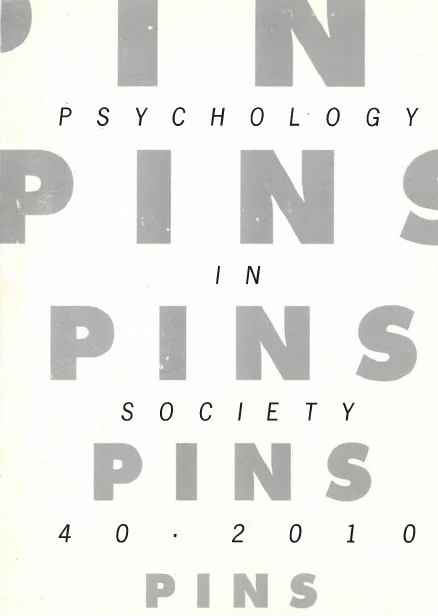MAKING WHITE LIVES: NEGLECTED MEANINGS OF WHITENESS FROM APARTHEID SOUTH AFRICA
DOI:
https://doi.org/10.17159//2309-8708/2010/n40a6Keywords:
Apartheid Archive Project, whiteness, privilege, power, race, South AfricaAbstract
In South Africa, as in other parts of the world, where race was positioned as the fulcrum on which power balances, whiteness seems to have maintained its defining weight. Even after dramatic political changes, whiteness in South Africa seems to continue to determine privilege and desirability. In this article, which analyses material from two archival sources, we consider some of the meanings of, and processes that went into, whiteness as a dominant category of identity and white life as desirable standard. The narratives and cases selected for analysis are not representative of the universe of meaning vis-à-vis whiteness, but are taken to be instructive as to how we might go about looking at whiteness as critical readers and psychologists sensitive to historical, economic and socio-political contexts. In an effort to complicate notions of privilege, dominance and whiteness – and to do so by means of an archive, with sensitivity to dynamics broader than the economic or the structural – the article focuses on the historical constitution and habitation of whiteness in South Africa to uncover and articulate some neglected meanings of whiteness, then and now. The stories of whiteness and white life under apartheid illustrate how these dynamics were fixed in place, insinuated into daily life, and defended against other forms of racial being. At the same time, the article shows how constructions of whiteness and being White were, and continue to be, driven by contradictions, ambiguities and paradoxes. From these stories we note the dynamics and tensions between essence and appearance. They reveal some of the thoughts and feelings that went into making and inhabiting a South African whiteness, and help us understand the complex and nuanced specificities of whiteness in this society.
Downloads
Downloads
Published
How to Cite
Issue
Section
License
This journal is an open access journal, and the authors' and journal should be properly acknowledged, when works are cited.
Authors may use the publishers version for teaching purposes, in books, theses, dissertations, conferences and conference papers.
A copy of the authors’ publishers version may also be hosted on the following websites:
- Non-commercial personal homepage or blog.
- Institutional webpage.
- Authors Institutional Repository.
The following notice should accompany such a posting on the website: “This is an electronic version of an article published in PINS, Volume XXX, number XXX, pages XXX–XXX”, DOI. Authors should also supply a hyperlink to the original paper or indicate where the original paper (http://www.journals.ac.za/index.php/pins) may be found.
Authors publishers version, affiliated with the Stellenbosch University will be automatically deposited in the University’s’ Institutional Repository SUNScholar.
Articles as a whole, may not be re-published with another journal.
The copyright of the article(s) lies with the author(s).
The copyright of the journal lies with PINS-psychology in Society.
The following license applies:
Attribution CC BY-NC-ND 4.0 - https://creativecommons.org/licenses/by-nc-nd/4.0/

